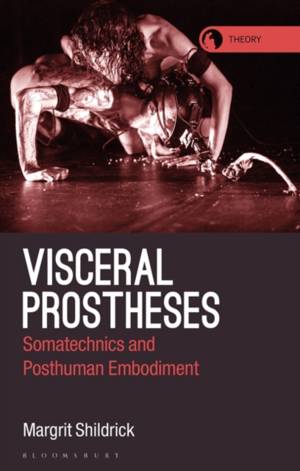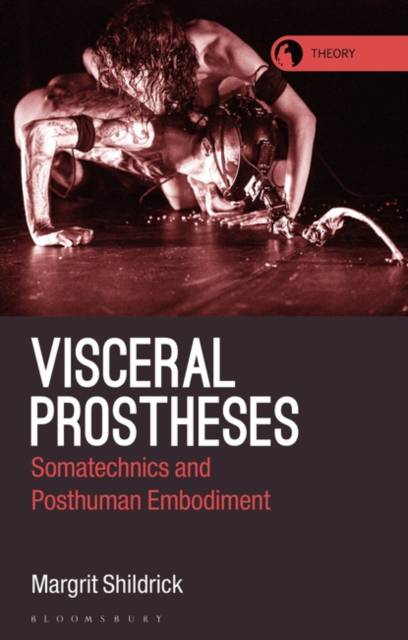
Bedankt voor het vertrouwen het afgelopen jaar! Om jou te bedanken bieden we GRATIS verzending (in België) aan op alles gedurende de hele maand januari.
- Afhalen na 1 uur in een winkel met voorraad
- In januari gratis thuislevering in België
- Ruim aanbod met 7 miljoen producten
Bedankt voor het vertrouwen het afgelopen jaar! Om jou te bedanken bieden we GRATIS verzending (in België) aan op alles gedurende de hele maand januari.
- Afhalen na 1 uur in een winkel met voorraad
- In januari gratis thuislevering in België
- Ruim aanbod met 7 miljoen producten
Zoeken
€ 203,95
+ 407 punten
Uitvoering
Omschrijving
In the postmodern era, when the interface of bodies, biologies and technologies increasingly challenges the very notion of what counts as human, Margrit Shildrick proposes new understandings of the limits and possible extensions of posthuman embodiment.
Focusing on prostheses, Shildrick broadens our understanding of both what prostheses are and what they might mean for human embodiment. As well as rehabilitation devices used by disabled people to replace or augment impaired parts of the body, Shildrick introduces visceral organic prostheses, which involve any cellular material that cannot be identified with the self, from organ transplantation to the physiological processes of microchimerism and the microbiome. Beyond origin narratives that concentrate on 'host' and 'guest' and 'self' and 'other', she examines the transformative possibilities that prostheses offer as they extend the nature of the embodied self beyond genetic singularity.
Building on cutting-edge interdisciplinary research in critical disability studies, transplantation studies, and bioscience, Visceral Prosthesesargues that bodies with prostheses in whatever form should no longer be understood as irregular forms of normative embodiment, but as limit cases of a common experience. In doing so, it challenges the western understanding of the singular self and welcomes a new understanding of the human.
Focusing on prostheses, Shildrick broadens our understanding of both what prostheses are and what they might mean for human embodiment. As well as rehabilitation devices used by disabled people to replace or augment impaired parts of the body, Shildrick introduces visceral organic prostheses, which involve any cellular material that cannot be identified with the self, from organ transplantation to the physiological processes of microchimerism and the microbiome. Beyond origin narratives that concentrate on 'host' and 'guest' and 'self' and 'other', she examines the transformative possibilities that prostheses offer as they extend the nature of the embodied self beyond genetic singularity.
Building on cutting-edge interdisciplinary research in critical disability studies, transplantation studies, and bioscience, Visceral Prosthesesargues that bodies with prostheses in whatever form should no longer be understood as irregular forms of normative embodiment, but as limit cases of a common experience. In doing so, it challenges the western understanding of the singular self and welcomes a new understanding of the human.
Specificaties
Betrokkenen
- Auteur(s):
- Uitgeverij:
Inhoud
- Aantal bladzijden:
- 272
- Taal:
- Engels
- Reeks:
Eigenschappen
- Productcode (EAN):
- 9781350176492
- Verschijningsdatum:
- 21/04/2022
- Uitvoering:
- Hardcover
- Formaat:
- Genaaid
- Afmetingen:
- 156 mm x 234 mm
- Gewicht:
- 557 g

Alleen bij Standaard Boekhandel
+ 407 punten op je klantenkaart van Standaard Boekhandel
Beoordelingen
We publiceren alleen reviews die voldoen aan de voorwaarden voor reviews. Bekijk onze voorwaarden voor reviews.









